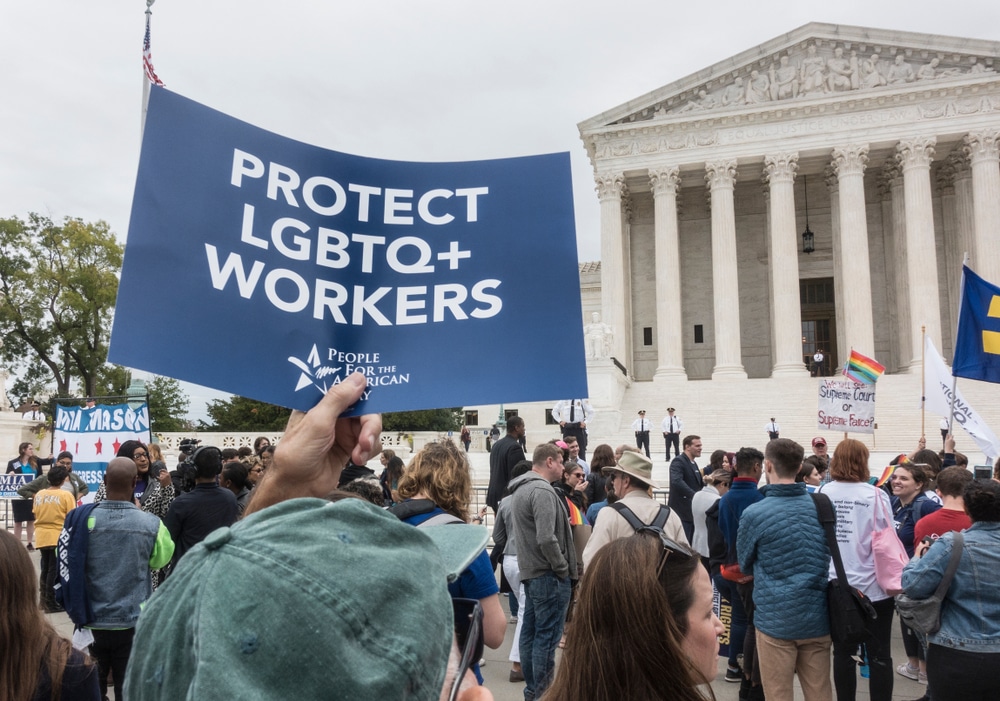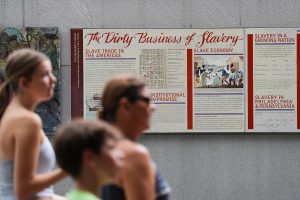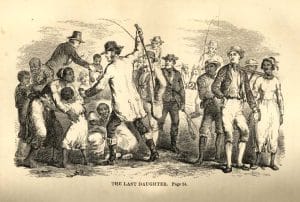Despite what may appear to be societal progress for the LGBTQ+ community around the United States, many queer workers feel unprotected in the workplace. While the Supreme Court ruled in 2020 that discrimination based on sexual orientation or gender identity is illegal, it is difficult to enforce state-by-state, and too many queer workers have faced hostility at work. More than half of all U.S. states, including Pennsylvania, lack laws codifying anti-discrimination protections for LGBTQ+ people. Only three counties in Pennsylvania – Allegheny, Erie, and Philadelphia – have passed ordinances prohibiting discrimination around sexual orientation or gender identity in employment. Without more local laws like this, and without a union and collective bargaining agreement, queer workers in the state are at serious risk for discrimination – and the situation may become even more daunting after the presidential election.
Nationwide, it’s not easy to be an LGTBQ+ worker.
Over 8 million workers identify as LGBTQ+, and nearly half of them have reported experiencing unfair treatment at work, and almost 40% have reported experiencing harassment at work. A whopping 30% of LGBTQ+ workers have reported being fired or not hired due to their sexuality, and over 45% remain closeted at work, probably because they don’t want to face discrimination, harassment, or unfair treatment. Outside of poor treatment or discrimination, queer workers are more likely to have low-wage jobs, unstable employment, and higher rates of poverty and unemployment. This is magnified for LGBTQ+ people of color, who also deal with racism both in the workplace and in our larger society.
Even with federal legislation that is supposed to protect against workplace discrimination, it’s extremely difficult to enforce. Steve Catanese, the president of SEIU Local 668, which represents public, social, and human services workers in Pennsylvania, told The Bucks County Beacon, “actually proving discrimination is incredibly difficult. Unfortunately we know that discrimination often works in less perceptible ways sometimes. People who tend to do it either aren’t self-aware about what they’re doing, or if they are, they’re usually mindful to cover their tracks.”
READ: Here’s How The American Library Association Is Working To Protect LGBTQ+ Librarians
Shira Chen, a public school teacher in Philadelphia, agrees:
“I haven’t experienced overt discrimination, but there has been a feeling of fear, and I’ve felt very discreet homophobia from students, families, and staff. I know of other teachers who have been harassed. It’s very hard to be a queer or gay teacher because you’re working with kids and our right-wing/homophobic society that we live in connects being queer with hurting kids or influencing them in some way.”
Teachers in Pennsylvania are already under attack for supporting their LGBTQ+ students, and according to Catanese, “There really aren’t a lot of workplace rights in Pennsylvania, there’s a lot fewer than you’d expect.”
Currently, advocates have been focused on passing the Fairness Act (House Bill 300, Senate Bill 150), which would prohibit discrimination based on sexual orientation or gender identity. PA is the only state in the northeast that lacks a statute explicitly protecting LGBTQ+ people from discrimination, and Ohio and West Virginia are the only bordering states that do not have these laws. The bill has passed the state house, and is currently in the Senate Labor and Industry Committee. But the state senate has been controlled by Republicans for decades, and it is unlikely that will change any time soon, leaving LGBTQ+ workers to fend for themselves.
When Donald Trump became President in 2016, it became clear that protecting queer people was not a priority, to say the least. His administration submitted amicus briefs to the Supreme Court supporting employment discrimination against the LGBTQ+ community, along with creating a hostile work environment, allowing federal contractors to claim a religious exemption in order to fire workers on the basis of their sexual orientation and gender identity, and more. It remains to be seen what will happen if he wins the 2024 election.
But there are some bright spots: LGBTQ+ workers are organizing for more protections in the workplace, and winning. Starbucks Workers United (SBWU), the union of Starbucks workers across the country, has made LGBTQ+ healthcare coverage a huge part of its organizing campaign. Silvia Baldwin, a lesbian trans woman who works at Starbucks in Philadelphia, told The Bucks County Beacon that “Why I believe in what I believe and why I’m fighting for what I’m fighting for, my identity is kind of secondary. But queer workers do have shared interests that motivate us. We have shared interest in safety at work, and in protection from discrimination from management, and access to things that materially improve our lives like healthcare.”
READ: Union and Queer: The growing solidarity between labor and the LGBTQ+ community
Starbucks began offering coverage for gender affirming surgery in 2013 – prompting many trans people to get jobs there – and then made changes to the plan, shifting more of the cost onto the worker. Workers at Starbucks decided to unionize in part so that they could ensure that gender affirming care and other health care would be covered by the company, and enforced by a collective bargaining agreement. Baldwin explained that the healthcare benefits are “convoluted and hard to access. It’s also that you need to maintain a certain amount of hours to qualify for benefits like that, and the scheduling is so bad. It’s difficult to get the company to follow through on what they promised, while using us as PR chips.” And in another fight for LGBTQ+ rights, last June, SBWU members went on strike at 150 stores to protest the removal of Pride month decorations. After the strikes and public criticism, the company pledged to clarify its policy on store decorations.
Pride at Work, which was founded in 1994 by a small group of LGBTQ+ union activists, is now an officially recognized constituency group of the American Federation of Labor & Congress of Industrial Organizations (AFL-CIO), and has grown to 29 chapters. They organize in both the labor movement and LGBTQ+ community to further both economic justice and rights for queer folks. Many unions also have LGBTQ+ caucuses to ensure there’s space to advocate for and support queer workers, like SEIU’s Lavender Caucus. SEIU was also led by out-lesbian Mary Kay Henry from 2010 until this summer, when she retired.
Ronnessa Edwards, a member of SEIU 668 in Philadelphia, says that the key to fighting discrimination in the workplace is a collective bargaining agreement and strong union. Her workplace’s contract ensures that both the union and employer won’t discriminate against any worker on the basis of “race, color, marital status, sexual orientation, AIDS/HIV status, gender identity or expression,” and more. The contract also states that “employees should be treated in a respectful manner which does not demean them or demean their dignity. It is understood that the Employer should refer to employees by the gender and name by which they identify.”
But it’s not just about the agreement, it’s about the culture of the workplace. Edwards told The Beacon that “it’s not just bargaining, it’s about collective power, and the ability to say, ‘hey, you’re not going to get away with that here, because we have a union shop, we’re active, we fight back, and you have to respect us.’” Edwards currently serves as the Vice Chairperson in SEIU’s chapter 12 Philadelphia location as well as the Committee Chairperson for Local 668’s Community Service Committee and Civil and Human Rights committee
Since LGBTQ+ workers clearly can’t depend on state or federal politicians to defend their rights, unionizing remains essentially the only avenue to ensure that they’re protected on the job. As our political landscape continues to shift, workers must rely on each other to stand up for rights and dignity in the workplace.







